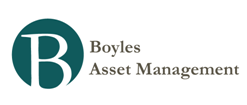Money and Finance
From Warren Buffett's October 1967 Letter to Partners:
- Starting With A Qualitative Search...
From The Small-Cap Advantage: How Top Endowments and Foundations Turn Small Stocks into Big Returns: Most investment processes begin with quantitative elements like filters and screens. The qualitative work is often left for the latter stages, after suitable...
- Graham And Dodd On Private Owner Valuation
From Security Analysis:The other application of the principle of investing in undervalued common stocks is directed at individual issues, which upon analysis appear to be worth substantially more than they are selling for. It is rare that a common stock...
- Graham And Dodd Quotes
From Security Analysis, 1940 edition. “If the analyst is convinced that a stock is worth more than he pays for it, and if he is reasonably optimistic as to the company’s future, he would regard the issue as a suitable component of a group investment...
- Jean-marie Eveillard - Value Investor Insight - May 30, 2008
JME: For the past 30 years we’ve sort of floated in style between Ben Graham and Warren Buffett. Graham’s approach is static, quantitative and focused on the balance sheet. There’s no attempt to look into the future and judge the more qualitative...
- Why Moats Matter
Morningstar posted a great video overview of the five kinds of moats they use in analysis. It runs around 20 minutes and its well worth your time to listen in to hear from the analysts describes the moat types and how they use them to identify investment...
Money and Finance
Warren Buffett on qualitative and quantitative factors in investing (1967)
From Warren Buffett's October 1967 Letter to Partners:
The evaluation of securities and businesses for investment purposes has always involved a mixture of qualitative and quantitative factors. At the one extreme, the analyst exclusively oriented to qualitative factors would say. "Buy the right company (with the right prospects, inherent industry conditions, management, etc.) and the price will take care of itself.” On the other hand, the quantitative spokesman would say, “Buy at the right price and the company (and stock) will take care of itself.” As is so often the pleasant result in the securities world, money can be made with either approach. And, of course, any analyst combines the two to some extent - his classification in either school would depend on the relative weight he assigns to the various factors and not to his consideration of one group of factors to the exclusion of the other group.
Interestingly enough, although I consider myself to be primarily in the quantitative school (and as I write this no one has come back from recess - I may be the only one left in the class), the really sensational ideas I have had over the years have been heavily weighted toward the qualitative side where I have had a "high-probability insight". This is what causes the cash register to really sing. However, it is an infrequent occurrence, as insights usually are, and, of course, no insight is required on the quantitative side - the figures should hit you over the head with a baseball bat. So the really big money tends to be made by investors who are right on qualitative decisions but, at least in my opinion, the more sure money tends to be made on the obvious quantitative decisions.
- Starting With A Qualitative Search...
From The Small-Cap Advantage: How Top Endowments and Foundations Turn Small Stocks into Big Returns: Most investment processes begin with quantitative elements like filters and screens. The qualitative work is often left for the latter stages, after suitable...
- Graham And Dodd On Private Owner Valuation
From Security Analysis:The other application of the principle of investing in undervalued common stocks is directed at individual issues, which upon analysis appear to be worth substantially more than they are selling for. It is rare that a common stock...
- Graham And Dodd Quotes
From Security Analysis, 1940 edition. “If the analyst is convinced that a stock is worth more than he pays for it, and if he is reasonably optimistic as to the company’s future, he would regard the issue as a suitable component of a group investment...
- Jean-marie Eveillard - Value Investor Insight - May 30, 2008
JME: For the past 30 years we’ve sort of floated in style between Ben Graham and Warren Buffett. Graham’s approach is static, quantitative and focused on the balance sheet. There’s no attempt to look into the future and judge the more qualitative...
- Why Moats Matter
Morningstar posted a great video overview of the five kinds of moats they use in analysis. It runs around 20 minutes and its well worth your time to listen in to hear from the analysts describes the moat types and how they use them to identify investment...

